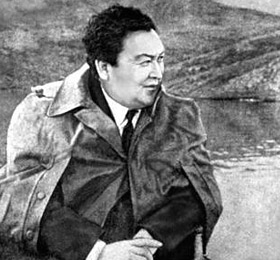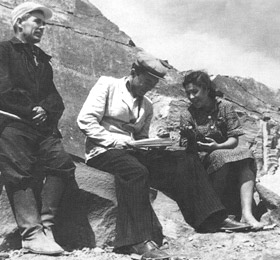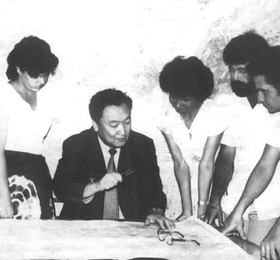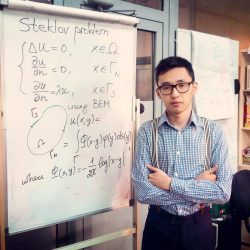Nurbek Tazhimbetov
An Aktobe born Nurbek is 22. This year he is finishing his studies at the Nazarbayev University and will be traveling to study at Stanford University. In 2014 he did his research internship, funded by the Foundation, at the California Institute of Technology in Pasadena, in the group of Professor Oscar Bruno.
1. Why did you choose this particular field?
It all started back in school with my interest in math. In 2011, I graduated from a state school that profiled in physics and mathematics. I saw my plans after graduating from university as working in the banking sector. However, I faced the choice right after my first year in university: economics or mathematics? My parents suggested that I became an engineer and in the end, we came to a compromise: I chose math as a cross between economics and engineering. And the further I go, the more I like studying the subject.
2. What was the most difficult part of the selection process?
Nothing scary for me, you know. Well, except the competitors — they are all strong and ambitious individuals that I noticed during the second round. But I don’t consider it as a difficulty because thanks to these people I myself became to be more ambitious and hardworking person. There is nothing wrong in a healthy competition.
3. Any interesting and memorable moments from the US internship?
I lived in California, and I really liked the local people, and, of course, the warm weather. I met students from different countries, including the US itself. And I was once again convinced that in science, there is no countries, no religions, no races, that there are only ideas. We often went to Los Angeles, as Pasadena, where I was doing the internship, is the city’s suburb. There are always so many interesting things you can do in LA after a busy week, like going to a concert, a bar or meet up with new friends from the dorm. I even took up swimming lessons at the university’s pool. Though I did not learn it well back there, upon my return to Astana I signed up for the courses and I can swim pretty well now.
4. How would you describe the impact of the internship?
In terms of personal development I have learned to live and work abroad, not just traveling and vacationing. I also mastered working in a scientific community, which has its own specifics. Moreover, I worked with one of the best professors in the field of applied mathematics. I had the opportunity to work with other researchers of the California Institute of Technology, too. And this year, thanks to the experience and recommendations of Professor Bruno, I was accepted to several universities: Stanford, Cornell, two universities in California (Santa Barbara and Santa Cruz) and the Okinawa Institute of Science and Technology Graduate University in Japan. I chose Stanford and in September 2016 I will start my doctoral studies in computational and mathematical engineering.
19.10.17, Stories
Seen by: 823





